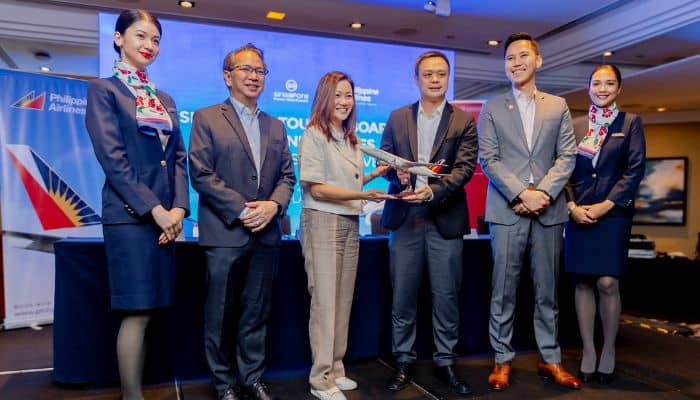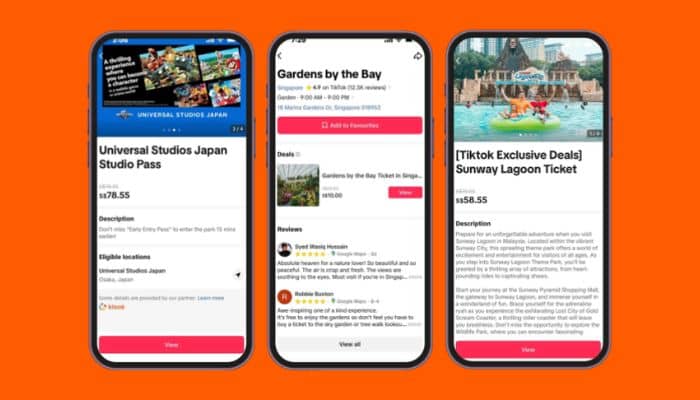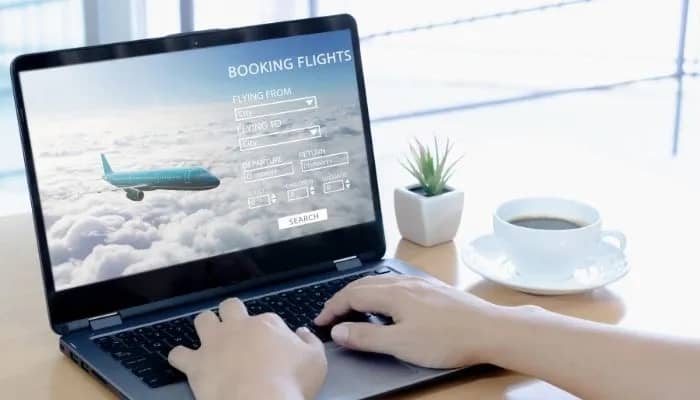Singapore – Almost 84% of Singaporean travellers are greatly inspired to travel to movie or TV show destinations, a report from Skyscanner revealed.
The insights from Skyscanner’s report showed that the majority of Singaporean travellers are greatly inspired by film and entertainment, with 8 out of 10 choosing destinations based on a movie or TV show they watched.
In addition, nearly half, or 41%, of the respondents consider the overall ‘vibe’ of a destination as important when planning where to go in 2024. The four key travel vibes identified by the report are set-jetting (84%), gig tripping (60%), budget bougie foodies (54%), and destination Zzzz (23%).
Among the four key travel vibes, set-jetting came out on top as Singaporean travellers embody their ‘main character energy’ thus wanting to slot themselves into the locations of their favourite shows.
The jet-setting trend can be partially attributed to the ‘Korean Wave’ that hit Singapore since 2001 and is still present today, with the TV series favourite Jeju in South Korea claiming the top spot in the 2024 destination list Singaporeans wish to visit. This is followed by Christchurch in New Zealand, where ‘Lord of the Rings’ was filmed, and Paris in France featured in ‘Emily in Paris’.
Aside from the ‘main character energy’ trend, ‘gig tripping’ follows behind, with Singaporean travellers expressing the willingness to fly to another country to catch their favourite artist.
Under this trend, 46% said they were willing to fly short-haul and 14% said they’d fly long-haul. In fact, 28% of Singaporean travellers plan to attend a gig or music concert abroad in 2024.
Meanwhile, eating and trying local authentic cuisines remains a popular activity for Singapore travellers, thus placing the ‘budget bougie foodies’’ trend on the top 4 list.
Around 30% of respondents have booked a destination purely to visit a specific restaurant, with Osaka, nicknamed ‘the kitchen of Japan’, being the top trending destination amongst Singaporean travellers.
Also making it to the top 4 key travel vibes is the ‘destinations Zzzz’ trend, with the data from the report revealing that sleeping ranks high on the Singaporean travellers’ main activities for their next holiday. This even ranked above water sports (22%), wildlife spotting (19%), and snow sports (18%).
The trend is likely to continue as 39% of Singapore travellers attest to enjoying better sleep on a holiday, likely due to the therapeutic escape a vacation offers.
The report also looked into the changing lifestyles of consumers that are creating new traveller types in 2024.
Among the types of travellers emerging in 2024 are the analogue adventurers, with one in five, or 19%, of Singaporean travellers aged 18 to 24-years-old now bringing a Polaroid camera with them on holiday. This stems from the trend where Gen Zs are bringing back old-school analogue adventures that ditch the digital device.
Celebration vacationers are also expected to emerge as more Singaporean travellers look into celebrating big milestones in their lives with style. The report revealed that two in three, or 64%, of travellers have taken a group trip to celebrate a birthday or anniversary.
However, the issue of cost often comes up, as one in two (48%) said that agreeing on the expected costs of the trip is their primary hurdle when planning group trips, followed by knowing how or where to communicate with their group (43%).
Lastly, the report also identifies the emergence of the ‘luxe-for-less seekers’, as 23% of Singaporean travellers plan to upgrade their flight to business or first class in 2024, while 25% plan to purchase airport lounge access.
The report not only covered decision-making trends but also the top trending destinations Singaporeans are looking into for their 2024 trips.
Japan places two of its cities, Osaka and Fukuoka, on the top trending list for Singaporeans, with the former being a foodie haven and the latter being beautifully serene. The bustling city of Taipei in Taiwan also rounds out the list at number three.
On the other hand, Indonesia came out top overall, securing the highest three spots for the best value destinations category, with its cities Yogyakarta, Jakarta, and Praya making it to the list.
It is worth mentioning, however, that the report also found Singaporeans grappling with the challenge of switching off while on vacation. Despite 89% of respondents acknowledging the importance of disconnecting during a trip, 34% still check their work emails, with 23% even admitting they are searching for a new job while overseas.
Cyndi Hui, travel trends and destination expert at Skyscanner, shared, “Singaporeans have shown themselves to be inspired travellers, driven by a strong desire to go where their imagination takes them. That said, we also see that the demands of modern life too often prevent us from committing ourselves to the present.”
“In 2024, we hope to help Singaporeans prioritise themselves, and that includes fully embracing the many opportunities and experiences that come with travelling. Skyscanner, with its suite of traveller-first tools, provides fuss-free travel planning, allowing you to live in the moment, free of distractions,” she added.











